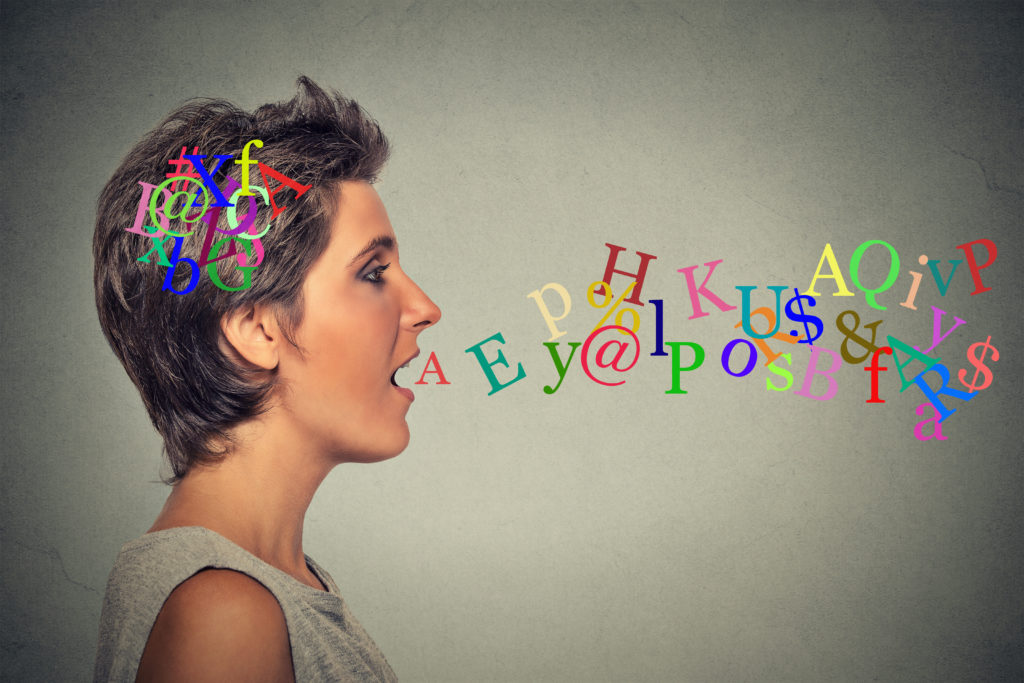Hello lovely students! As the lingua franca of the world, the English language is used daily by people for business, leisure and personal purposes. A recent survey found that around 1.5 billion people on the planet speak English as either a native language or a foreign language, meaning almost a quarter of the globe’s population has been introduced to it.
However, does this mean that English is an easy language to learn? Well, the answer is different for everybody. For Dutch speakers, it may be easier to learn English as the languages come from the same family. For Mandarin speakers, it may be harder.
However, whatever your first language is, there are some challenging aspects of the language for English learners that you should know about.
Are you ready to learn about them?

Where does English come from?
Before I tell you about the difficulties of English, I think it is a good idea to tell you about the origins of the language. English belongs to the Indo-European group of languages meaning it is related to other languages in Western Asia and Europe.
The branch of this language family that English belongs to is West Germanic. The Modern English language is in the same language family German, Dutch, Flemish and Frisian.
In addition to this, two-thirds of the vocabulary in the English language is closely linked to the vocabulary found in Romance languages (Italian, French, Romanian, Spanish and Portuguese). These languages belong to the Italic branch of the Indo-European family.
So there you have it. English is intertwined with not one but two sub-family language groups, making it an interesting language to learn
Fun fact: Icelandic is the only living language that closely resembles Old English.

Why would English be hard to learn?
And we’re onto the main section of the article. There are many ways in which English may be a difficult language to learn, and you can see some of the reasons below.
Pronunciation
English pronunciation is very different to other languages such as Italian or Spanish, which are mainly pronounced as you see them written. Why is knife pronounced nife or gnome pronounced nome and bomb pronounced bom? Why do silent g’s, k’s and b’s exist?
The same goes for silent e’s, t’s w’s. h’s and c’s. Take a look at a few examples of English words with silent letters in the table below.
| Silent e | Silent t | Silent w | Silent h | Silent c |
| made | butcher | sword | anchor | crescent |
| fade | castle | answer | hour | descent |
| sale | fasten | whole | honest | scenario |
| care | mortgage | wrist | rhythm | scissors |
That’s not everything for pronunciation though. There are some words, particularly those that have ough in them that are pronounced differently from one another. For instance, why is cough pronounced coff but though is pronounced tho?
Pronouncing words can be hard to learn for non-native speakers and even native speakers but it shouldn’t put you off learning English.
Look at this phonemic chart to help you out more.

Homophones
Speaking of pronunciation, homophones are something that you really have to keep an eye on in English. What are homophones? Homophones are words that sound the same, but they have completely different spellings or meanings or both.
Sew and so is a common example. Look at the list below for more.
1) see and sea
2) they’re, their, there
3) sell and cell
4) flour and flower
5) ate and eight
Every English learner needs to be aware of homophones.

Heteronyms
Heteronyms are the opposite of homophones. These are words with the same spelling but they are pronounced differently and tend to have different meanings. An example of this is the word tear.
Tear has two meanings, one meaning rip and the other the liquid that comes out of your eye. The first meaning is pronounced teə as in ter whilst the second meaning has a second syllable and is pronounced tɪə as in te – er.
English is full of words spelt the same with multiple meanings.

Irregular verbs
You may be surprised to know that there are over 200 commonly used irregular verbs for the past tense and past participles in the English language. Irregular verbs are verbs that do not end in -ed such as played, stayed and dressed. Instead, irregular verbs can have various endings as per the table below.
| Regular form | Past simple | Past participle |
| run | ran | run |
| read | read | read |
| go | went | gone/been |
| sing | sang | sung |

Unclear formality
If you’ve learnt or speak German, Spanish or French, chances are you’ve used the formal you from time to time. If you’re a Thai speaker, you more than likely use kráp or kâ at the end of every sentence to be polite. If you speak any language in India, you would probably use ji at the end of a person’s name as a mark of respect.
Would it shock you if you learnt that the English language doesn’t have any formal pronouns, nor does it have any phrases at the end of the sentence to appear polite? Please and thank you are used commonly to express politeness, but the reality is, that’s more or less it.
Does this strike you as odd?
Fun fact: in Old English there was an informal and formal you. Thou was used as the informal and ye as the formal. It disappeared centuries ago.

A lot of idioms
We do have a lot of confusing idioms in English. And we English speakers love to use them in our daily conversation. They make no sense whatsoever out of context but English speakers love them.
A really good example of idiom use is it’s raining cats and dogs which means it is raining heavily.
Obviously, this does not mean that cats and dogs are falling from the sky. Though if they were, and they were unharmed, it would be wonderful, wouldn’t it?
Take a peek here to learn more idioms.

Phrasal verbs
Ahh yes, how could I forget? Phrasal verbs. What is a phrasal verb you ask? Phrasal verbs are short phrases made of a verb + adverb/preposition or both. The overall meaning of the phrase is different from the separate words.
The phrasal verb work out is a good example. Work is what you do to earn a living and out means away from the inside of a place or thing. However, work out means….wait for it… to either a) solve a puzzle or b) to train the body through physical exercise.
Peculiar I know. There are reportedly around 5,000 phrasal verbs in the English language, and I bet not even native English speakers know them all. Take a look at the article here to learn some more.

Adjectives
Speaking of vocabulary, there are so many adjectives in the English language. If you’re a creative soul, this is perfect. The adjectives are so nuanced, that even synonyms sometimes don’t have the same meaning as the base adjectives.
Let’s take the simple adjective big for the size. Large is a synonym for big and the two words do not have much difference in meaning.
However, if I were to say colossal or gigantic, that would mean really big which is different to big.
This may sound like a lot, but it’s really fun to learn new English vocabulary. Look here for more information on adjectives and their word order.

Accents
As English is so widely spoken by native English speakers and non-native speakers, there are so many English accents out in the world now. The United Kingdom alone has 37 accents, from received pronunciation to Glaswegian. British English is not just BBC English. And that’s just a small island.
When you consider all the different accents in Australian English, American English and so on, it is a lot.
Take a look here to see where English is an official language.

Is it really the hardest language to learn?
Despite all the above information, no. English is definitely not the hardest language to learn. That crown goes to Mandarin, which is interesting as it has the most native speakers in the world.
Here are all the reasons that make English easy to learn.
Conjugations
There are very few verb and pronoun conjugations in the English language. In fact, perhaps the hardest thing to remember is to add the letter s to present simple verbs with the pronouns he/she/it and the different verbs to be such as am, are and is. The verb forms in the English language is very easy to remember.
Fun fact: in Old English, there were many verb conjugations. This of course has changed over time.

It is not a tonal language
English is not a tonal language at all when compared to other languages such as Mandarin or Korean. Sure, we do use tone to imply things, like sarcastic tone when being sarcastic, or emphasis on a particular word to highlight it but this does not mean that what we are saying is a completely different word.
This in itself makes it easier to learn.

Articles
You’ll also be happy to know that there are only two types of articles in the English language: the indefinite and definite articles. A/an and the fall under these two. Easy peasy when compared to many other languages, right?

What can I do to make learning English easy?
There are so many things you can do now to make English learning fun and informative, and this is largely due to technology. If classes are better for you, sign up for one of my courses here with me, Lucy, where you’ll learn all the language skills you need to speak English fluently. To make sure you choose the right course for you, take the English level test.
Is that everything?
Absolutely not! Check out the video below on my channel English with Lucy, to find out more.